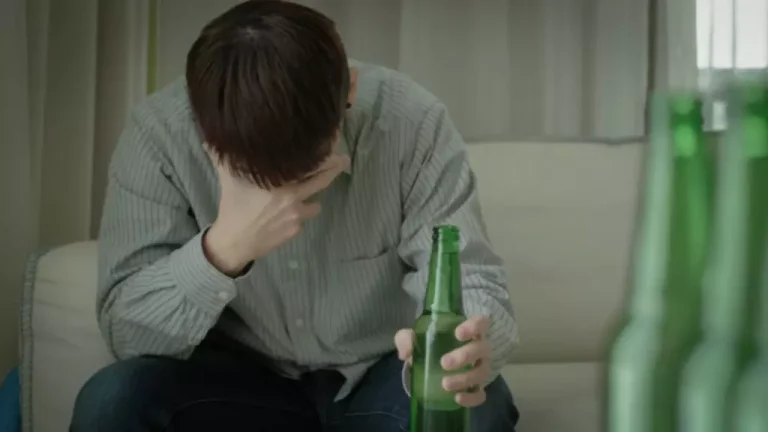
The amount of alcohol it takes to cause withdrawal symptoms can vary from person to person. For this reason, you should always talk to your doctor before attempting to quit drinking. It can help you reach goals and can minimize some of the unpleasant and severe symptoms of alcohol withdrawal. Deciding to taper off alcohol is a slower process that requires planning, but it can decrease both the chase of experiencing severe withdrawal symptoms and relapse. Ria Health offers access to many of these tools, including prescription medications, recovery coaching, and online support groups—all through a HIPAA-compliant smartphone app.
How to Wean Off Alcohol: Tapering Safely and on Schedule
- It does this by providing compassionate care and evidence-based content that addresses health, treatment, and recovery.
- You could post about your experiences anonymously online in r/dryalcoholics, they’re a fairly open and supportive group of people.
- If you think you’re tapering too quickly, it’s okay to slow down.
- Those who find that they cannot taper off the number of drinks for any significant length of time have likely developed alcohol use disorder, a condition commonly known as alcoholism.
- Being exposed to either form of a trigger can result in unwanted relapse.
- Becoming more aware of your alcohol triggers and reasons for drinking can help you plan ways to help manage the urge to drink.
When symptoms become that serious, it can be difficult to seek help. Seeking help as early as possible during the withdrawal process is the best way to stay safe as you cleanse your body of alcohol. A variety of factors can determine a person’s withdrawal symptoms and the proper tapering procedure.
How To Make an Alcohol Tapering Schedule

If you or someone you know needs help detoxing from alcohol, The Recovery Village Ridgefield Drug and Alcohol Rehab is here for you. Contact us today to speak with a representative and begin on the road to lasting addiction recovery. However, it should not cause someone to become stuck on a step, which would defeat the purpose of a taper. A person is how to taper off alcohol free to increase the taper speed (e.g., lower by three drinks instead of two) as they see fit. Withdrawal symptoms are a sign that the taper is going too fast.
Common Weed Withdrawal Symptoms
If you feel comfortable doing so, discuss your challenges with your primary healthcare professional. Finding a therapist can also be a great starting point if you’re uncomfortable opening up to your healthcare professional. Exploring, in writing, what you find difficult and when you most want to drink can help you notice patterns that offer more insight into your alcohol use. Maybe you’ve never been interested in logging your innermost thoughts, but journaling can be a great tool to track your feelings as you work on quitting alcohol.


Aside from unavoidable triggers, tapering off alcohol can also have side effects which can be difficult to manage at home. A final strategy to assist with an alcohol taper is to get a good network of peer support. But Dr. Streem knows that it can be hard to recognize signs of alcohol abuse in ourselves. Often, people with alcohol use disorder find that other people in their lives spot their addiction long before they do. Whatever your reason to Alcohol Use Disorder quit drinking, know that you’re doing yourself a favor.
Personalized Treatment
Getting =https://ecosoberhouse.com/ professional help can mitigate harmful withdrawal symptoms and ensure success. It is sometimes possible to taper your alcohol use at home if your AUD isn’t severe. Although, you’ll need support if you want to successfully and safely taper at home. The Recovery Village Ridgefield medical detox center in Vancouver, WA, is a fully staffed rehab facility designed to help you wean off alcohol in comfort. We offer 16 detox beds and around-the-clock medical care provided by a multidisciplinary team of addiction experts.
What Happens to the Body When You Stop Drinking?
To learn about how our substance abuse treatment programs address alcohol dependence and withdrawal management, please contact us today. All of these withdrawal symptoms are common during acute alcohol withdrawal syndrome. For example, depression could cause suicidal thoughts, and eating poorly can weaken your immune system. Tapering off alcohol is a step in the right direction, but there’s more to the story. It’s vital in this process to have professional help, so you can stay safe and as comfortable as possible.
- Some find tapering is not a suitable option to stop drinking due to various factors such as social responsibilities or peer pressure.
- Doctors can prescribe and adjust these as needed to keep you safe and comfortable.
- This is a highly personal decision, which can be made through self-reflection, and with the support of a medical professional and your peers.
- A popular way to taper off alcohol is to gradually reduce the number of drinks you consume over a period of time.
- However, it is important to be aware of the risks of attempting a taper on your own.
- It might also be worth checking out a 12-step program in your area, like Alcoholics Anonymous or SMART Recovery, to see if it feels like something that might be useful for you.
Make A Plan That Fits Your Needs
Once they appear, acute symptoms may continue for around a week. Laying it all out in black and white can take time and some serious self-examination. Understanding your habits and your motivations to quit drinking can help you understand the change you’re making in your life and reinforce why it’s important.
How to Safely Taper Off Alcohol
Research has shown that professional help improves your ability to overcome an addiction to alcohol or cut back if you have found it difficult. The most common research technique among those surveyed is an internet search (61%), followed by asking a doctor or medical professional (55%). If you’re relying on internet searches to find potential treatment centers, make sure to ask these ten questions to find a licensed facility that can meet your needs. However, even the best-designed tapers can put you at risk for alcohol withdrawal syndrome. For this reason, you should never start an alcohol taper before clearing with your doctor.



